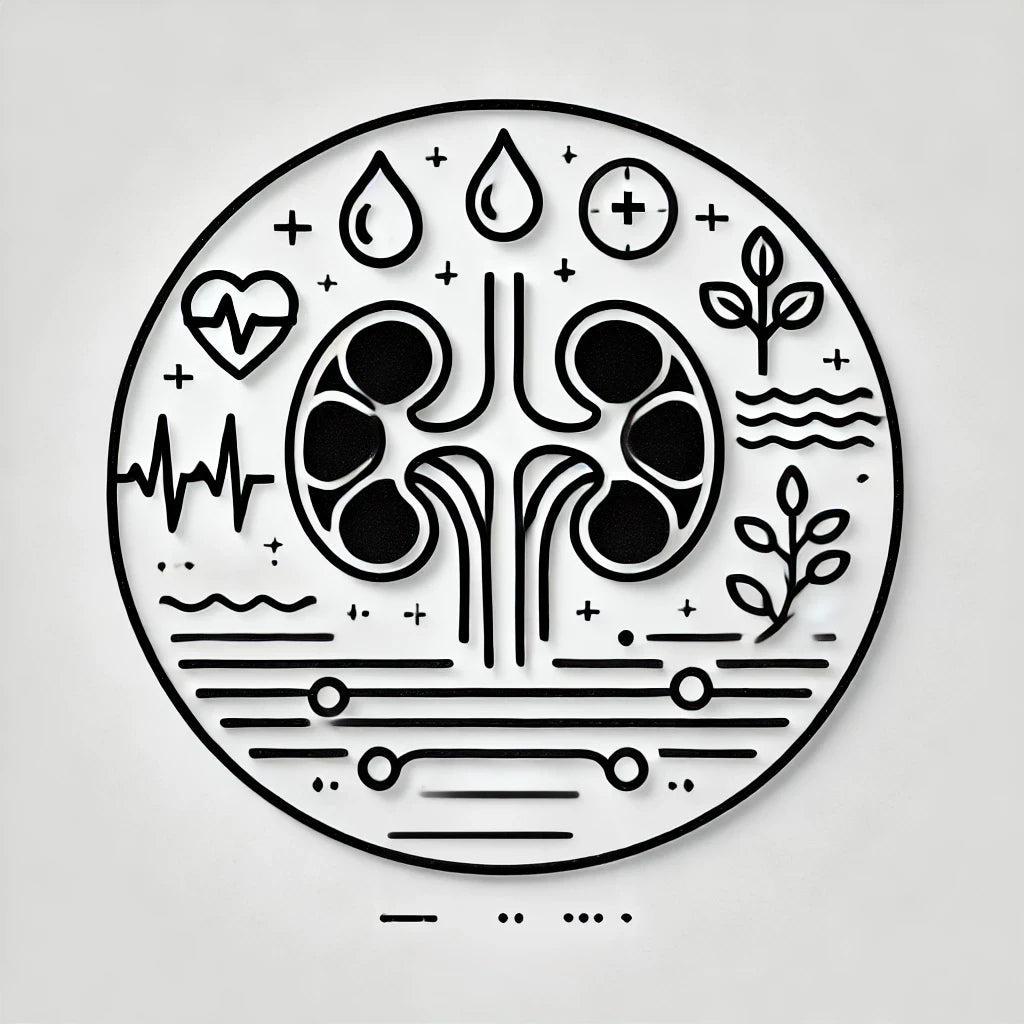
Everything You Need to Know About Kidney Function Testing
Share
What Is a Kidney Function Test?
Kidney function tests are a series of laboratory tests that evaluate how well your kidneys are filtering waste and maintaining overall body balance. Since the kidneys play a crucial role in removing toxins, regulating fluids, and balancing minerals, early detection of kidney disease is essential for effective treatment.
Why Is Kidney Function Testing Important?
Millions of people worldwide suffer from kidney disease, but many remain undiagnosed until the condition becomes severe. Regular kidney function testing helps:
Detect kidney disease early
Monitor chronic kidney disease (CKD) progression
Assess the impact of diabetes or hypertension on kidney health
Evaluate kidney function before surgery or medication adjustments
Common Kidney Function Tests
1. Blood Urea Nitrogen (BUN) Test
The BUN test measures the amount of nitrogen in your blood that comes from urea, a waste product processed by the kidneys. High BUN levels may indicate kidney dysfunction.
2. Creatinine Blood Test
Creatinine is a waste product from muscle metabolism, and its levels in the blood reflect kidney filtration efficiency. An elevated creatinine level may signal impaired kidney function.
3. Estimated Glomerular Filtration Rate (eGFR)
The eGFR test estimates how well your kidneys are filtering waste. An eGFR below 60 mL/min/1.73m² for three months or more suggests chronic kidney disease.
4. Urinalysis (Urine Test)
A urinalysis checks for protein, glucose, blood, or infection in the urine. The presence of excess protein (proteinuria) may indicate kidney damage.
5. Microalbuminuria Test
This test detects small amounts of albumin (a type of protein) in the urine. It is particularly useful for people with diabetes or high blood pressure, as early protein leakage may indicate kidney disease.
6. Cystatin C Test
Cystatin C is an emerging biomarker that may provide a more accurate assessment of kidney function than creatinine-based tests, particularly in older adults.
Who Should Get a Kidney Function Test?
You should consider a kidney function test if you:
(1)Have diabetes or high blood pressure
(2)Have a family history of kidney disease
(3)Experience symptoms such as swelling, fatigue, or changes in urination
(4)Take medications that may affect kidney function
(5)Are over 60 years old
How to Prepare for a Kidney Function Test
Fasting: Some blood tests may require fasting for accurate results.
Hydration: Drinking enough water helps improve urine test accuracy.
Medication Adjustments: Inform your doctor about any medications or supplements you take, as some may affect test results.
Understanding Your Kidney Test Results
Normal BUN Levels: 6–24 mg/dL
Normal Creatinine Levels: 0.6–1.2 mg/dL (men), 0.5–1.1 mg/dL (women)
Healthy eGFR: 90+ mL/min/1.73m²
Normal Urine Albumin: Less than 30 mg/g
If your test results indicate kidney dysfunction, consult a healthcare professional for further evaluation and lifestyle adjustments.
How to Maintain Healthy Kidneys
(1)Stay hydrated
(2)Eat a kidney-friendly diet (low sodium, moderate protein, and rich in fruits/vegetables)
(3)Control blood sugar and blood pressure
(4)Avoid excessive use of NSAIDs and other nephrotoxic medications
(5)Exercise regularly
Final Thoughts
Kidney function tests are a vital tool for early detection and management of kidney disease. If you are at risk, schedule regular checkups to monitor your kidney health and take proactive steps toward a healthier life.
